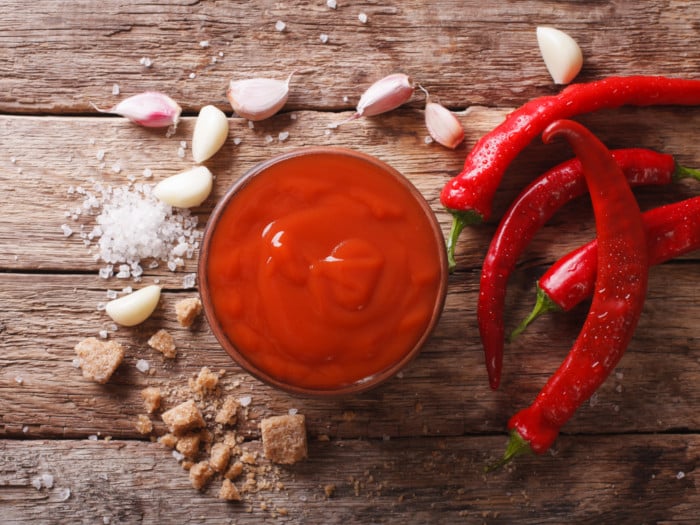Using chili paste substitutes can help to ensure that your dishes retain their spicy bite, even if you may run short of this flavorful ingredient.
Chili paste can refer to a few different condiments made from ground chili peppers. Ingredients and uses vary widely by region, and include Korean Gochujang, Japanese Yuzukosho, and Tunisian Harissa, just to name a few. The flavors can also vary greatly, depending on the ingredients that are included. Some chili pastes are made with fermented soybeans, while others have garlic and citrus. All chili paste is known to be quite spicy. [1]
Chili Paste Substitutes
Chili paste substitutes may be necessary for dietary or allergic reasons, or perhaps you want to try a new angle on your favorite recipe. You may be able to find certain brands of chili paste at your specialty grocer, but if they’re not available, there are a few substitutes such as hot sauce, homemade chili paste, and tomato paste.

Only for tantalizing your taste buds! Photo Credit: Shutterstock
Hot Sauce
Just like chili paste, hot sauce flavors vary widely by brand and ingredients. Many bottled hot sauces contain a lot of vinegar, so you’ll want to avoid those. Look for sriracha, which is garlicky, salty, and very spicy. It’s runnier than chili paste, so try adding a teaspoon of sweet paprika to a tablespoon of sriracha in order to thicken it up. [2]
Homemade Chili Paste
Adventurous home cooks will love making chili paste. Cook fresh hot chilies in oil or simmer dried chilies in boiling water. Blend with roasted garlic, dried shrimp, and vinegar for a savory spicy paste or use lemongrass, ginger, and sugar for a bright and balanced chili paste. Choose chilies that suit your spice level and enjoy a jolt of flavor that is perfect for your palate.
Tomato Paste
This should really only be used as a last resort if consistency is more important than flavor. Tomato paste doesn’t taste anything like chili paste, but if you add some hot chili flakes, cayenne, or hot sauce to this basic ingredient, you can make this substitute work in a different way. [3]
